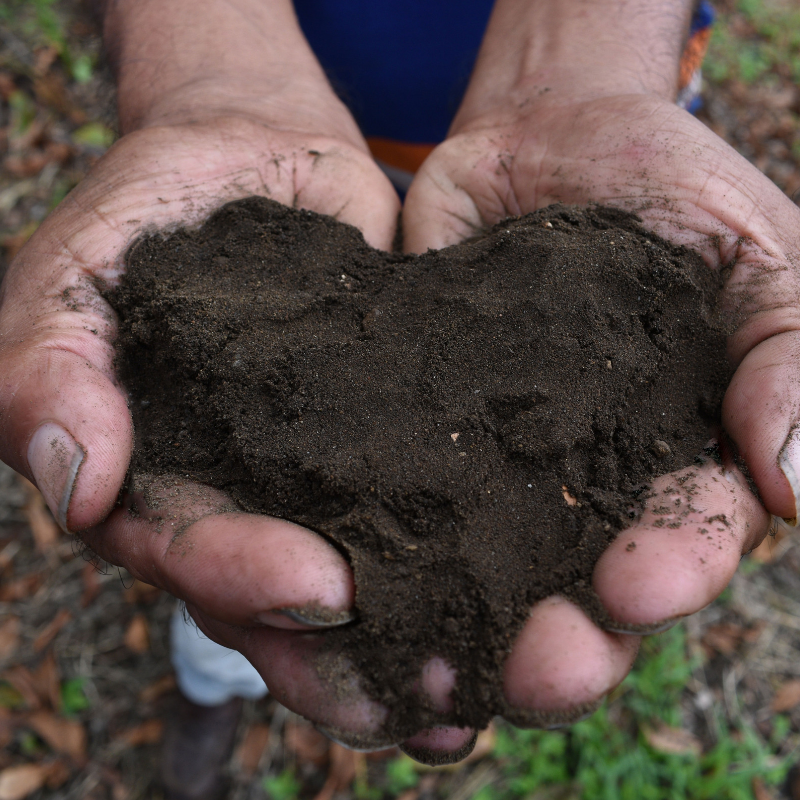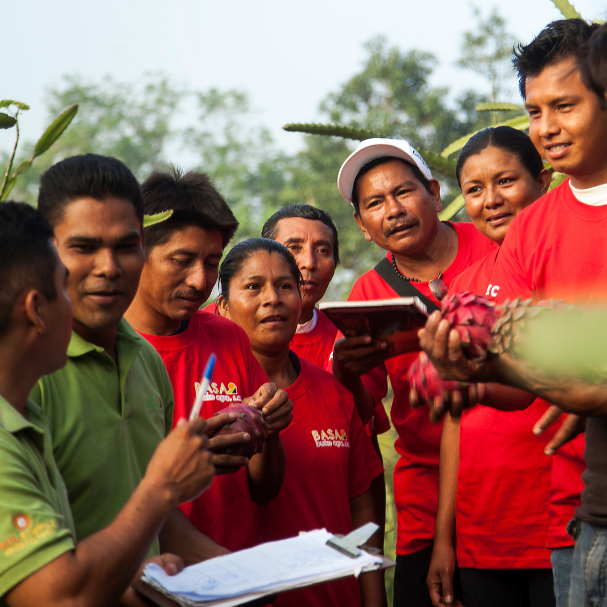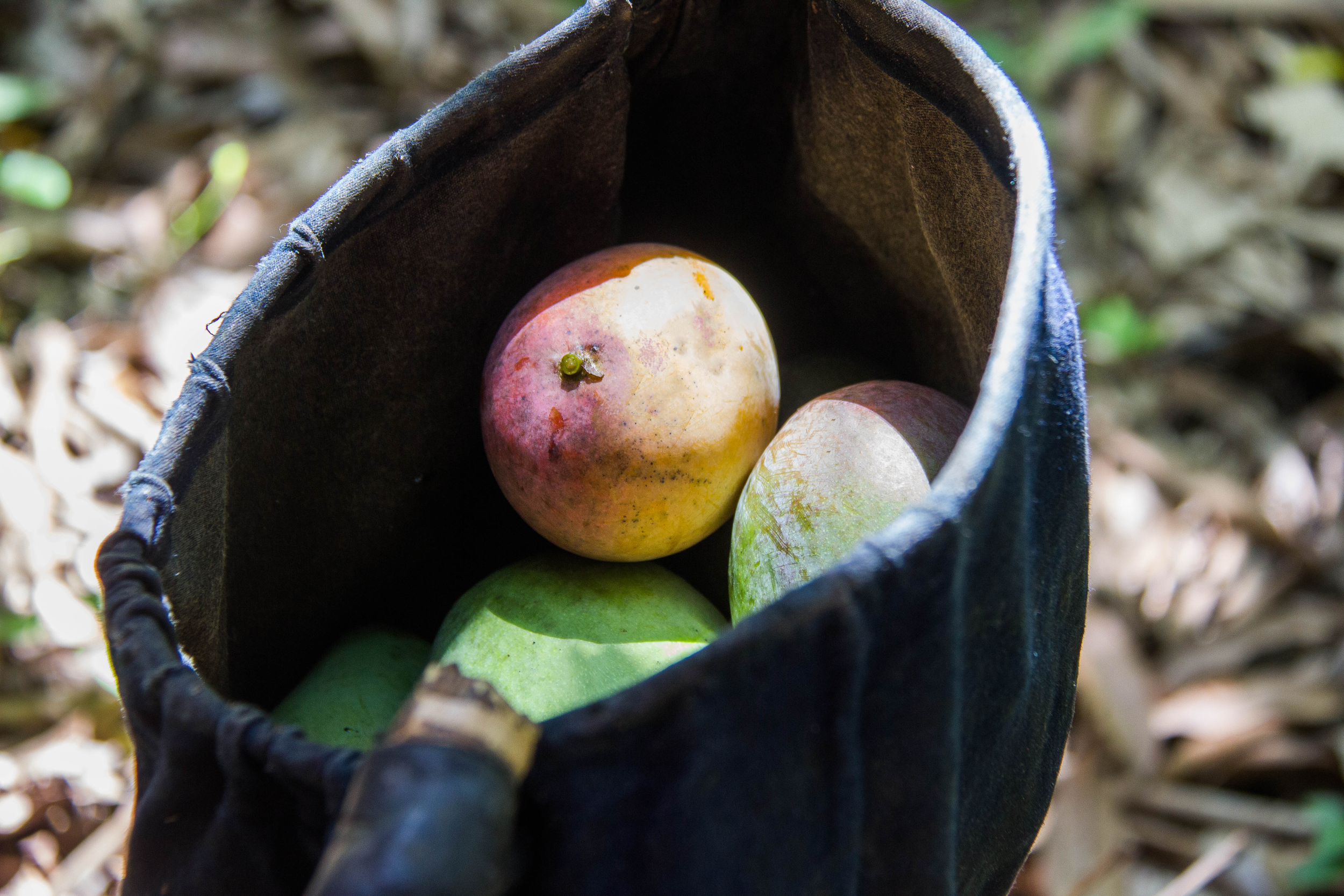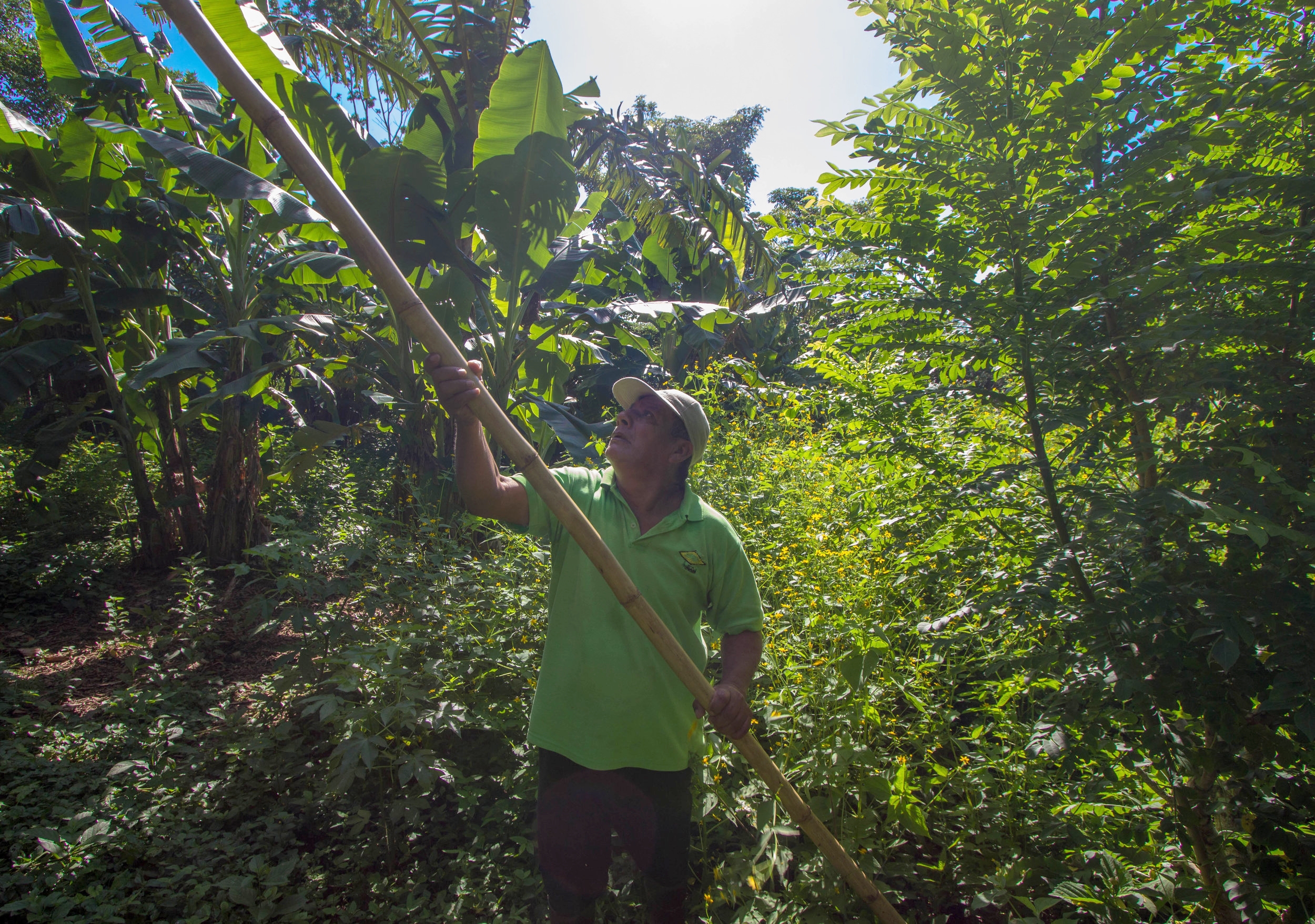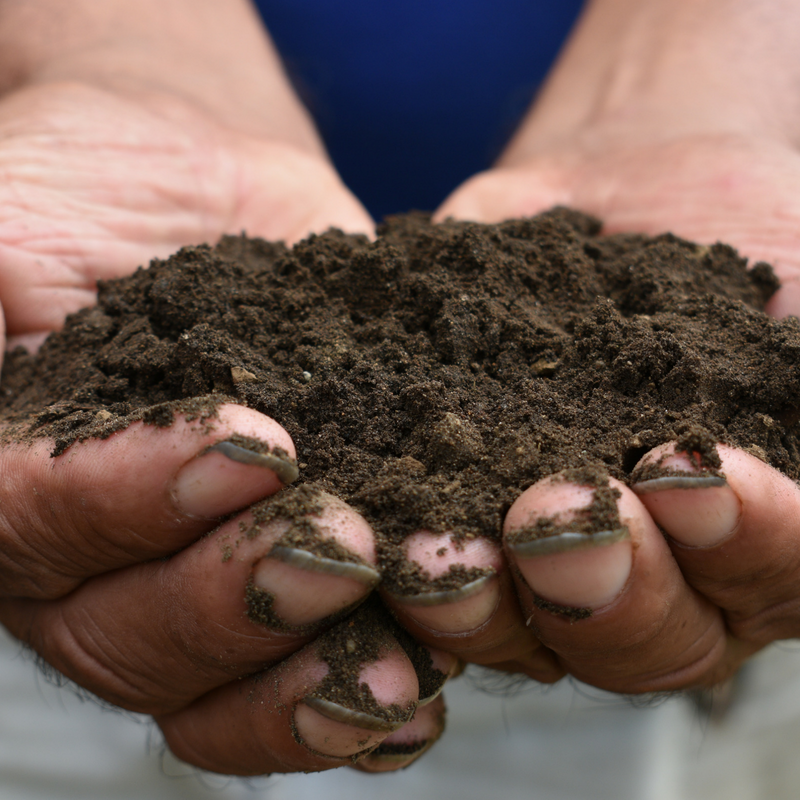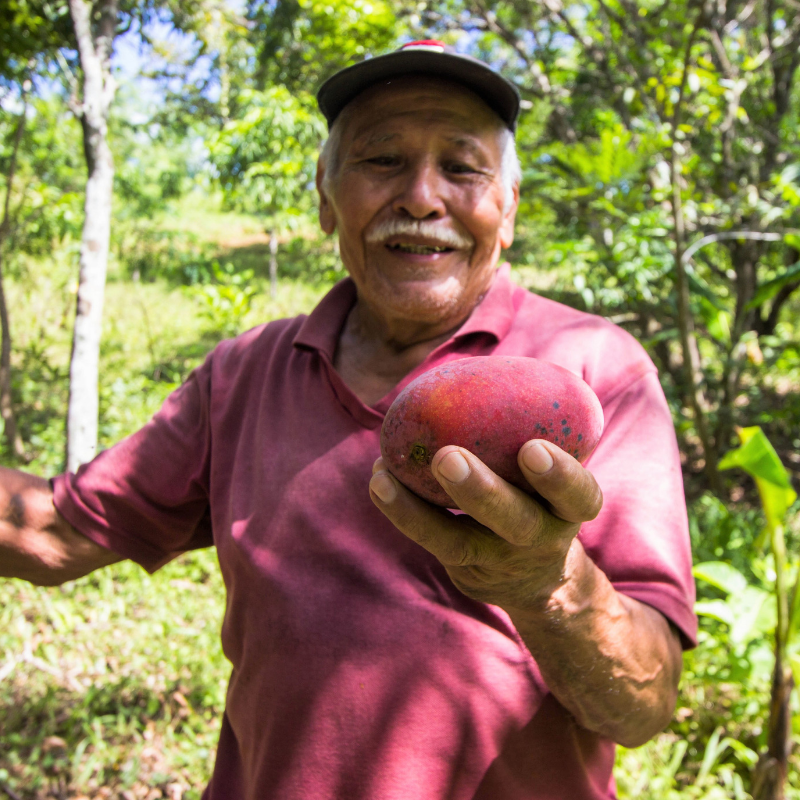ORGANIC INPUT PROGRAM
Research conducted by the Burke Agro field team revealed that farmers lacked financing for and access to organic inputs during non-harvest seasons. With no access to organic inputs, farmers were applying chemical fertilizers to add nutrients to their soil. Continuous use of these chemical fertilizers depletes essential soil nutrients and minerals that are naturally found in fertile soil. The result was mismanaged farms with lower yields and a direct loss of income for the families.
Burke Agro’s organic input program promotes an approach to farming that helps enrich soils, preserve carbon stocks, protect watersheds and support a healthy ecosystem that is more resilient to climate change.
Using soil and water samples, Burke Agro’s agronomists are able to identify the appropriate blend of organic fertilizers necessary to boost productivity and increase the health of farmland. Estimates suggest that some of the more vulnerable producers, those living off the production reaped from a single hectare of land, have been able to double their yearly yields due to the application of high-quality organic fertilizers.
REGENERATIVE ORGANIC AGRICULTURE PROJECT
Regenerative organic agriculture incorporates farming best practices and environmental conservation techniques that put a central focus on improving soil health, increasing biodiversity, food security, and smallholder farmer prosperity.
Burke Ago’s regenerative agriculture program works alongside smallholder farmers to identify and implement regenerative farming practices. The company then provides field protocols for measuring indicators of a farming ecosystem, including soil health, carbon sequestration, watershed management, biodiversity and physical characteristics and productivity. Burke Agro’s program also establishes a baseline of the smallholder farmer landscape to monitor and evaluate the effectiveness of regenerative measures over time.
Farmers that participate in regenerative farming practices incorporate a variety of practices to help ensure security in food, nutrition, health, energy, income, biodiversity and a regenerative environment.
If you would like to learn more about regenerative agriculture, please visit regenorganica.org.


